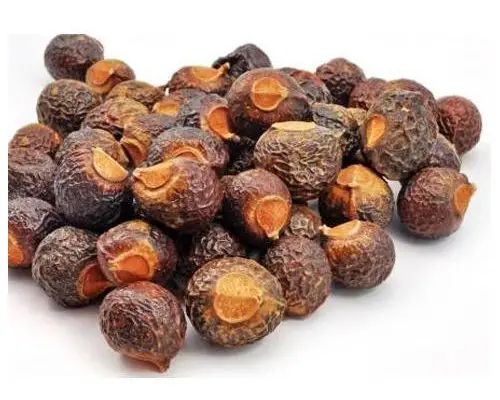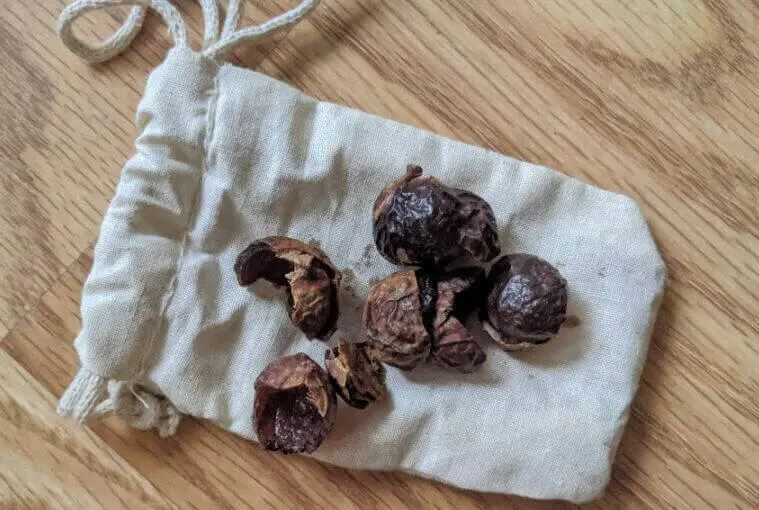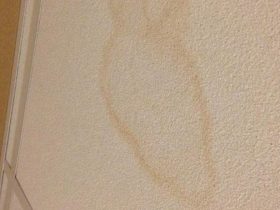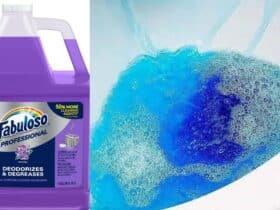Sometimes I forget to time my supermarket run before the laundry detergent runs out. Doesn’t that put you in a bind? You’ve loaded up the washing machine and then you realize that there’s no detergent?
I know I’ve faced this situation one too many times. That’s why I read up and found out the best detergent substitutes that I can hash together from things around the house.
Not only are these cheap alternatives to laundry detergent, but they work just as well, if not better.
Want to know the secret to DIY’ing the most effective homemade laundry detergent? This is the complete guidebook.
1. Baking soda – the best DIY ingredient
Baking soda seems to have an endless list of uses and benefits. Useful for cleaning pots and pans and for playing vital roles in my kids’ science projects, it is an item that I always have enough in stock.
Surprise, surprise – it has yet another application. Baking soda can be used in place of regular detergent to clean your clothes.
I have two preferred methods of using this ingredient.
I. Baking soda and vinegar mixture
What do you need?
- ½ cup baking soda
- ½ cup vinegar
- Cold water for rinsing
Steps to follow
- Load up your machine with the dirty laundry and let it fill up with water.
- Add in the vinegar and let it run the first wash cycle.
- Pour the baking soda in after the rinse cycle begins.
- Ensure that you use cold water in the rinse and drying cycles.
And just as easy as that, your clothes will come out smelling fresh, looking clean, and feeling super soft.
I like to use this method for particularly solid clothes because the baking soda and vinegar mixture is a strong stain remover.
II. Baking soda and lemon juice mixture
Did you run out of vinegar? Don’t worry because you can swap it out for another common acid found in the kitchen.
That’s right, there’s the good ol’ lemon juice to the rescue.
What do you need?
- ½ cup baking soda
- ½ cup lemon juice
- Cold water for rinsing
Steps to follow:
- Add the baking soda to the laundry load before the first wash cycle and let it run.
- Pour in the lemon juice once the rinse cycle begins.
If you have very visible stains on your clothes, you can treat them with lemon juice and steam before throwing them into the laundry. I love this trick for making clothes smell awesome.
Baking soda is a cheap, handy, and eco-friendly alternative to your regular laundry detergent!
2. Other liquid soaps, like shampoo and body wash
Laundry detergent is a liquid soap, so if you run out, you can use another liquid soap in its place, right?
Well, partially right.
That’s if you know their concentration, and more importantly, know what concentration is right for your clothes. Dish soaps as laundry detergent: that’s a risky experiment. They’re likely to leave your clothes rough and with a starchy appearance, so I’d recommend you don’t do that experiment.
Similarly, DIY laundry detergents with shampoo and body wash are much milder and might not clean the clothes with the same efficiency as regular detergent.
Here is a handy table for making easy swaps between liquid soaps
| Type of liquid soap | Amount equivalent to 1 cap of laundry detergent |
|---|---|
| Liquid dish soap | 0.5 cap |
| Shampoo | 1.25. cap |
| Liquid body wash | 0.5 cap |
Note: Dish soap and shampoo tend to foam and create more suds than laundry detergent. You might have to get rid of some of the foam manually to prevent the machine from clogging up.
Add a dash of vinegar in the rinse cycle to clean greasy clothes.
3. Using bar soap
When you find yourself wondering, “what can I use instead of washing liquid?” Feel free to experiment!
This following method is one that I have used many times with great results. I find it far more economical than liquid laundry detergents.
And the simple solution is – bar soap!
Yes, the trusty old bar soap can be effectively converted into a quick and easy substitute for liquid laundry soap.
What do you need?
- One bar soap of any kind
- Kitchen knife
- Vegetable peeler
Steps to follow:
- Cut out a small piece of the bar soap (approximately about a fifth of its size.)
- Use a vegetable peeler or grater to create small shavings of the soap.
- Drop them into the laundry load like you would with a normal liquid detergent.
Bar soap works exactly like liquid soap, however, it is important to make sure that you cut small enough shavings. Larger pieces will not dissolve fully and create ugly soap marks on your clothes.
4. Go back to nature and use soap nuts
I love soap nuts because not only are they reusable; they are also 100% organic and chemical-free.
What are soap nuts, you ask? Soap nuts are a type of berry that look like acorns or chestnuts. Their hard shells have a natural alkaline compound that works similar to a synthetic detergent.
Benefits of switching out your chemical detergent for soap nuts?
- Because soap nuts are completely natural, you need not worry about chemical allergies or skin irritation caused by a harsh detergent.
- Soap nuts are also gentle on the clothes and do not make them rough and itchy after washing.
- You can use a batch of 3-4 nuts for at least five cycles before their cleaning abilities diminish.
- The nuts are entirely compostable. Just throw them into the organic bin and breathe easy because you just reduced the plastic waste from your house.

5. Use a laundry ball or similar reusable alternatives
Are you worried about the biweekly plastic consumption from laundry detergent? I go through at least half to one bottle each month, so I hate creating so much plastic waste each time I throw it out.
I have instead discovered the wonders of the laundry ball.
A laundry ball looks like a child’s rubber ball and is filled with little pockets of detergent. When you put the laundry ball in the washer, only some pockets get activated and the others remain insulated.
Because of this, you can reuse a laundry ball over and over again. In my experience, one ball lasts up to 60-70 washes before its detergent runs out.
Isn’t this a wonderful solution to reduce your monthly waste generation?
6. Vodka for laundry? Sign me up!
Of all the detergent hacks I have experimented with, this one is by far the most bizarre.
Using vodka to clean clothes? It sounds crazy, but trust me, it works wonders.
What do you need?
- Half a cup of vodka
- Cold water
- A spray bottle
Steps to follow
- Hang the piece of clothing that you want to clean on a hanger.
- Mix equal parts vodka and cold water in the spray bottle.
- Spritz the item liberally with the mixture until it is lightly soaked. Spray more on parts like the collar, back, and arms.
- Leave it on the hanger to dry for 20-30 minutes.
The vodka will eventually evaporate and leave your clothes feeling fresh for another wear. Remember, this trick works best on delicate fabrics like silk, chiffon, rayon, etc. if they are not too soiled or stained.
7. Oxygen-based bleaches for laundry
Another one of my favorite laundry detergent options is using low-concentration oxygen bleaches like hydrogen peroxide. This is great for cleaning whites or light-colored clothes.
In fact, I swear by hydrogen peroxide so much that I even add a little when I use regular laundry detergent to give my clothes that extra bright shine.
What do you need?
- 1 cap of hydrogen peroxide
- ½ cup of baking soda
- Cold water for rinsing
Steps to follow:
- Prepare a mixture of 1 bucketful water and 1 cap of hydrogen peroxide.
- Soak the diary laundry in this solution for 30-40 minutes before washing.
- Transfer the soaked clothes into the washer. Add the baking soda and run the full cycle.
- Ensure that you use cold water for rinsing out the clothes.
The combination of a bleaching agent like hydrogen peroxide and an alkaline agent like baking soda is ideal for attacking grease stains, food marks, and dirt on your clothes.
So, move over your old laundry detergent, and embrace the full range of natural and DIY substitutes you can find in your home.









Leave a Reply
View Comments